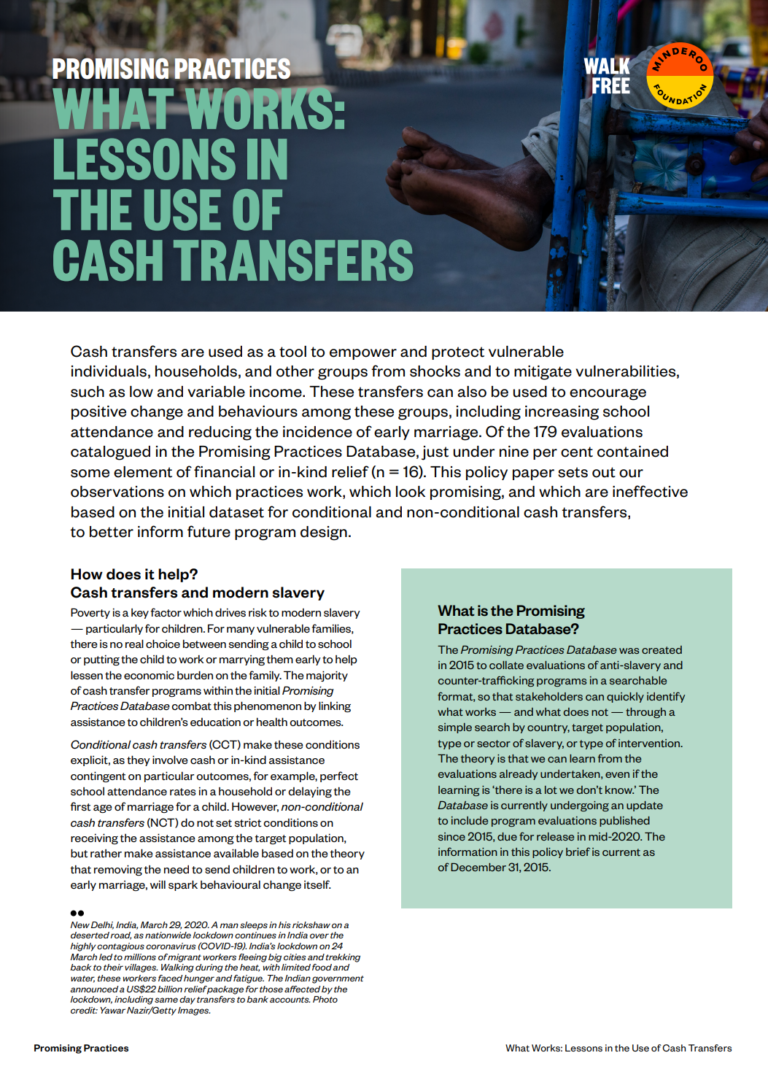Cash transfers are used as a tool to empower and protect vulnerable individuals, households, and other groups from shocks and to mitigate vulnerabilities, such as low and variable income. These transfers can also be used to encourage positive change and behaviours among these groups, including increasing school attendance and reducing the incidence of early marriage. Of the 179 evaluations catalogued in the Promising Practices Database, just under nine percent contained some element of financial or in-kind relief. This policy paper sets out our observations on which practices work, which look promising, and which are ineffective based on the initial dataset for conditional and non-conditional cash transfers, to better inform future program design.

